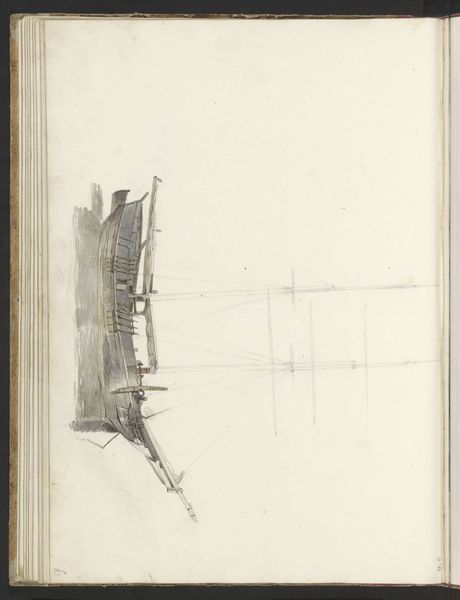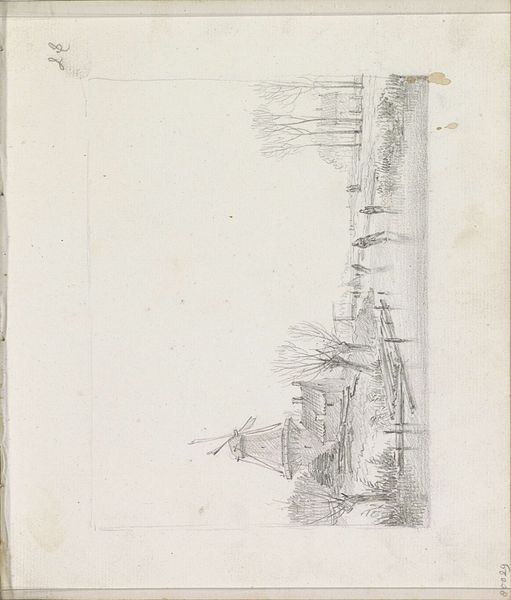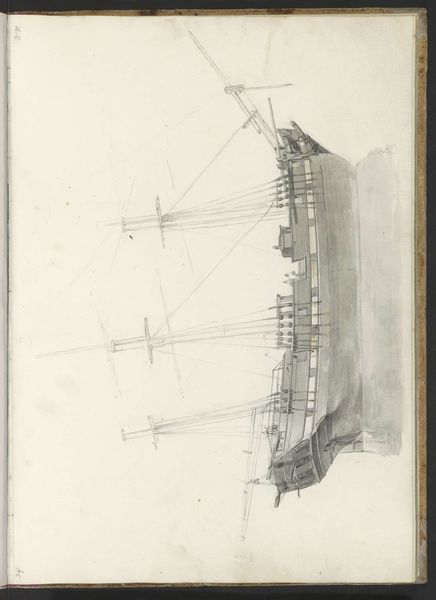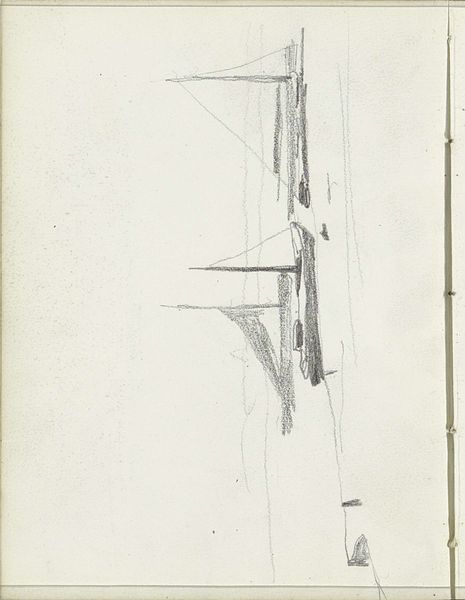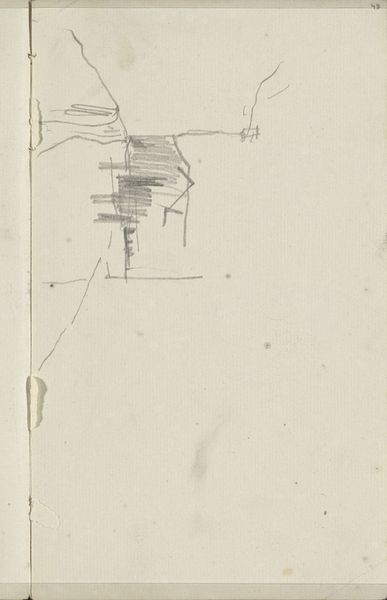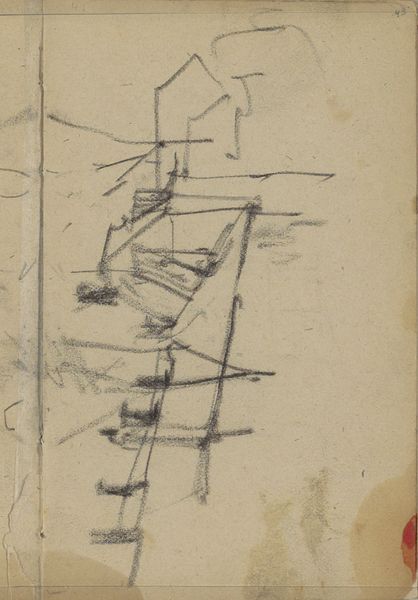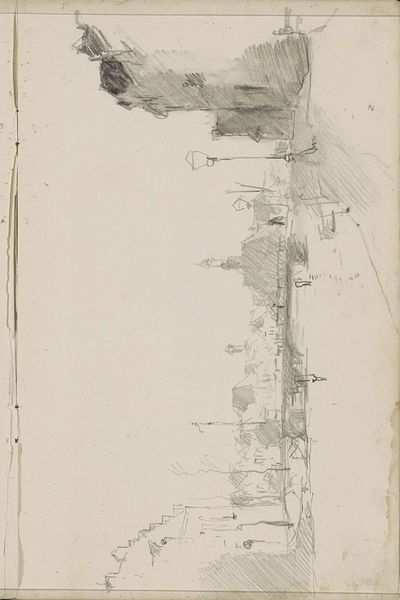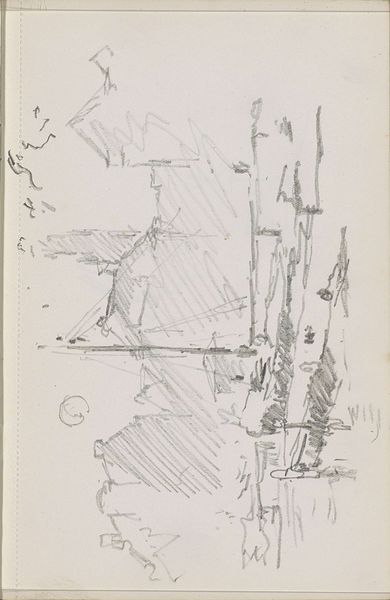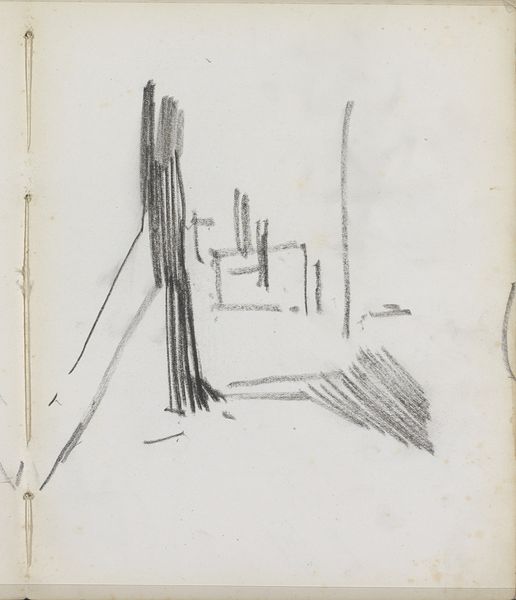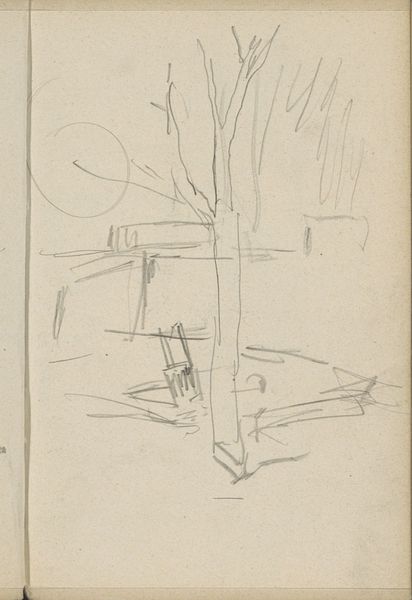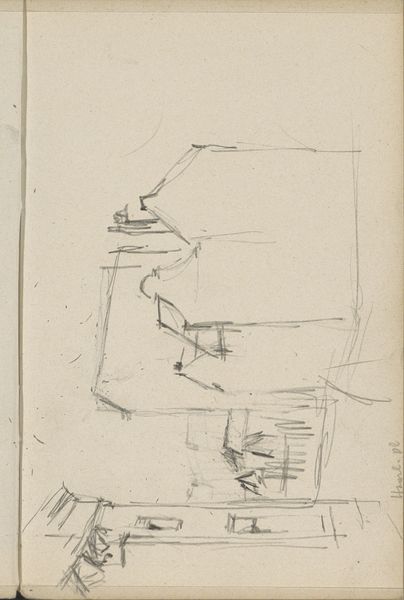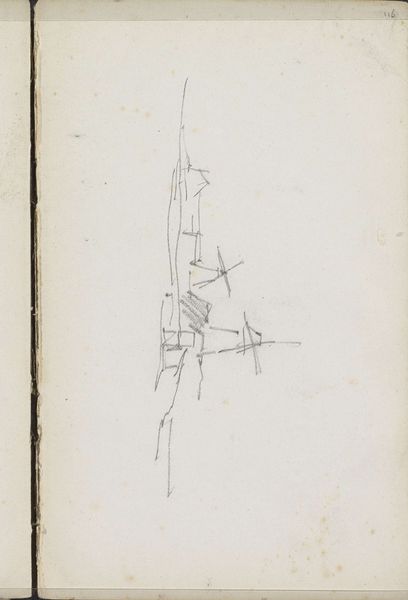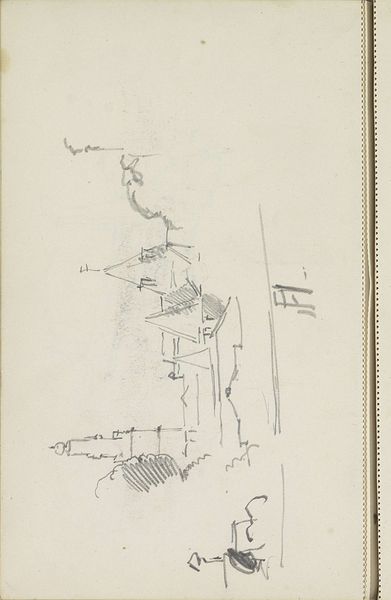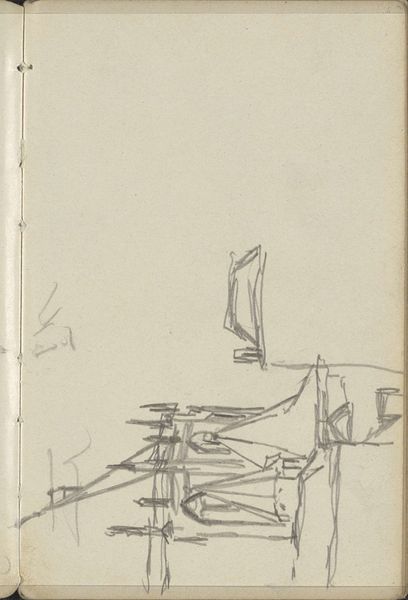
drawing, paper, pencil
#
drawing
#
pen sketch
#
landscape
#
figuration
#
paper
#
form
#
pencil
#
line
Copyright: Rijks Museum: Open Domain
Curator: Here in the Rijksmuseum, we're looking at "Twee zeilschepen," or "Two Sailing Ships," a drawing by Johannes Christiaan Schotel, created sometime between 1797 and 1838. Editor: My immediate impression is fragility. Look how lightly the ships are rendered, almost like ghosts on the page. There's a rawness to the sketch—a definite focus on form and structure using pen and pencil on paper. Curator: Indeed. Schotel was deeply immersed in the maritime world, and this drawing is a glimpse into his process. He was sketching ship construction—it is perhaps documentation. This ties into the powerful role of the Dutch navy during that era. Naval power underpinned much of the global political and economic activity of the time. Editor: Exactly, we should consider the social context. Shipbuilding wasn't just craft. There was complex knowledge to document, passed down. I can see his focus on the wooden scaffolding, how ships were painstakingly built. This drawing displays the labor of making a sailing vessel ready for sea. Curator: And to see this technical understanding captured so directly really gives us a sense of the ships themselves as powerful political tools of their day, as vehicles of trade. Schotel is showing us how the Dutch Republic exerted influence, which might otherwise have been left unsaid. Editor: Looking at it this way, this is more than a maritime scene— it’s the visual vocabulary of production itself and we can also think about drawings as reproducible objects with the rise of the industrialization, able to spread technical knowledge and construction further afield. Curator: A pertinent reflection. This unassuming sketch truly bridges art, labour and the maritime supremacy that helped to build a nation. Editor: The fragility contrasts quite vividly with that political dominance you were referring to. Perhaps Schotel sensed the fleeting nature of naval power at the turn of the century.
Comments
No comments
Be the first to comment and join the conversation on the ultimate creative platform.
